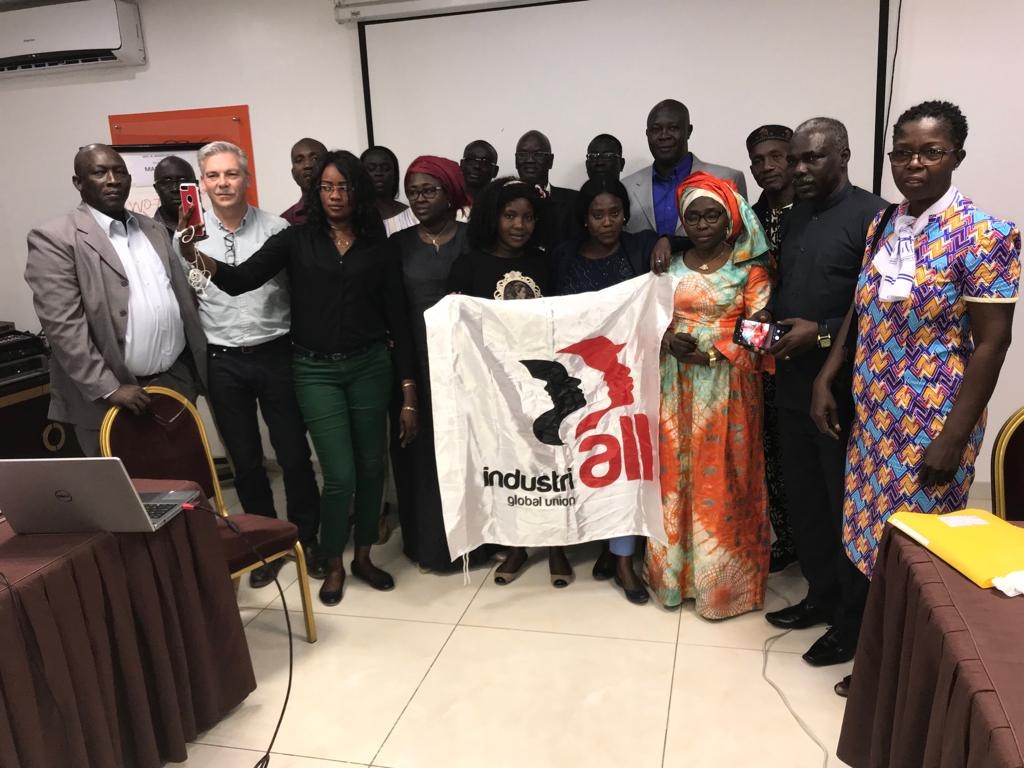Read this article in:
English
12 March, 2019Over 30 participants at a union building workshop and women’s meeting in Dakar, 25-26 February, resolved to recruit and organize more workers, defend the rights of women workers, fight precarious work, strengthen leadership capacity, and increase union-to-union collaboration.
Participants discussed strategies to build sustainable unions through leadership training, strengthening union solidarity instead of competition, supporting union capacity development and forming a national coordinating committee that will be responsible for joint actions and campaigns.
An organizational assessment exercise evaluated the unions to see what is working and what needs to be attended to. The strategies to strengthen the unions in Senegal will be implemented through the union building project activities.
The workshop also commended the recently concluded precarious work project (2015-2017), which saw over 11,000 workers getting permanent jobs after the conversion of their contracts from short-term and casual to permanent ones in Burkina Faso, Cameroon, Nigeria and Senegal.
About 29,000 precarious workers were recruited into trade unions from the four countries. The project also led to better wages and working conditions including improvements in health and safety at workplaces and the payment of benefits such as medical support, leave, housing and transport allowances.
Organized by the IndustriALL Global Union Sub Saharan Africa regional office, with support from the Belgian trade union confederation (ACV-CSC BIE), and the French Chemical and Energy Union (FCE CFDT), the workshop and meeting had participants, mainly women, from IndustriALL affiliates SNTIT, SNTICS, SYNTICS and SUTIDS.
These affiliates organize in the chemical, mining, textile and garment and industrial manufacturing sectors. The other countries that are part of the project, which is co-funded by Swedish Union to Union, and where similar activities are taking place, are Burkina Faso, the Democratic Republic of the Congo, Lesotho, Madagascar, Zambia and Zimbabwe.
Says Jan Franco, international officer of ACV-CSC:
“The challenges for Senegalese unions are enormous. During the planning meeting the participants identified priorities and achievable goals. What struck me is the willingness of the trade unions to cooperate and the active presence of women and young unionists. The open atmosphere and debates on methods of approach and action showed a readiness to strengthen capacity.”
Paule France Ndessomin, regional secretary for the Sub Saharan Africa concurs:
“We applaud the Senegalese unions’ commitment to collaboration because this is where unions draw their strength from. As discussed at the women’s meeting, it is important to prioritize the issues confronting women at the workplace including sexual harassment and gender-based violence. Unions must ensure that these are addressed.”
